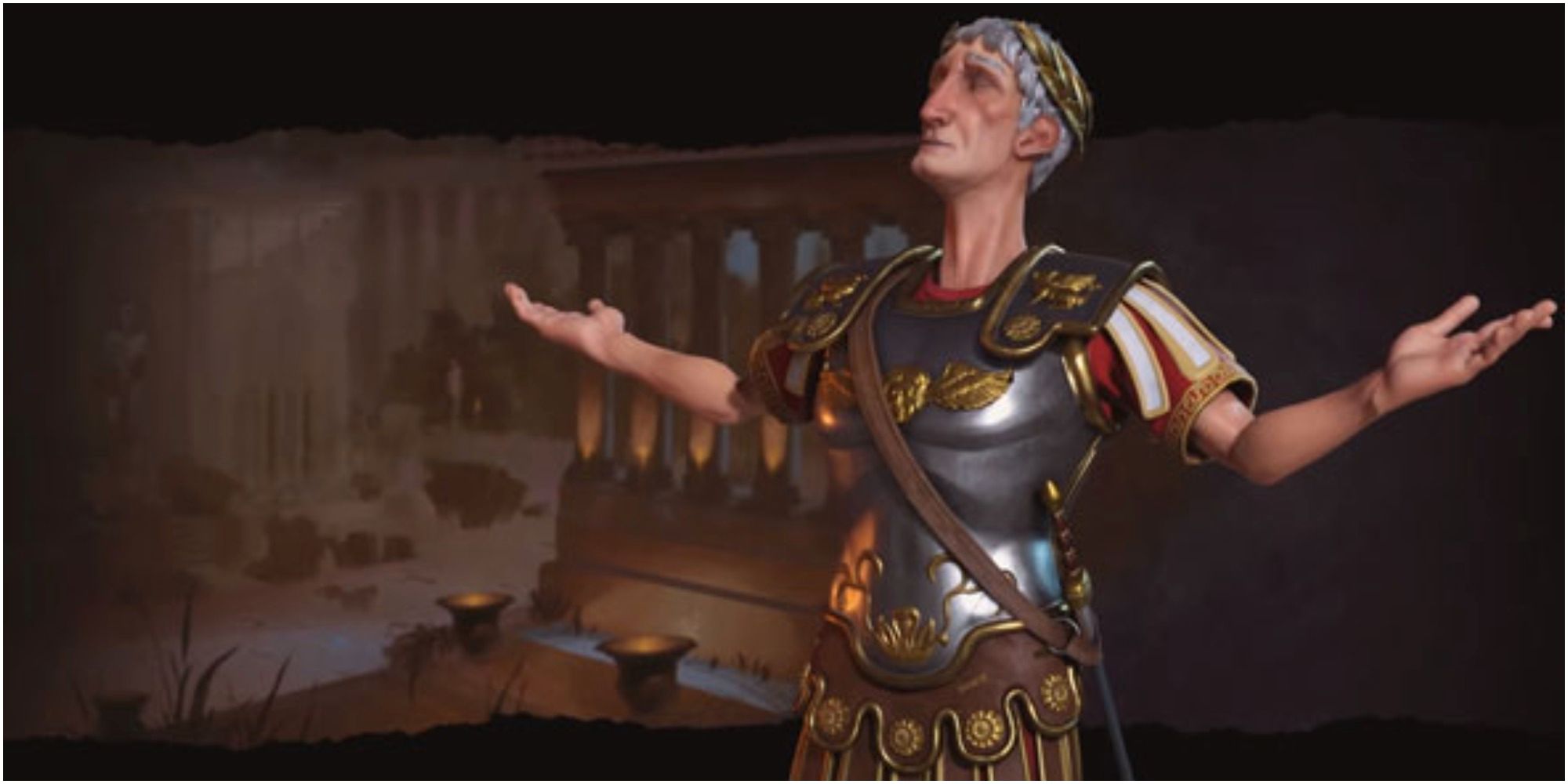
Sid Meier's Civilization series has a long and storied history in the strategy game genre. Many games have emulated it in some form or another, trying to capture what makes the series so popular and consistently beloved.
RELATED: Civ 6: Tips On How To Get A Diplomacy Victory
The latest game to vie for the throne is Humankind. There are numerous similarities between the two, growing a population over a long period of time, the use of districts, even the use of distinguishable leaders from history to play as, but that does not stop Humankind from doing a number of things differently to help it stand out and possibly surpass Civilization 6, the latest in the franchise.
Cultures vs. Civilizations
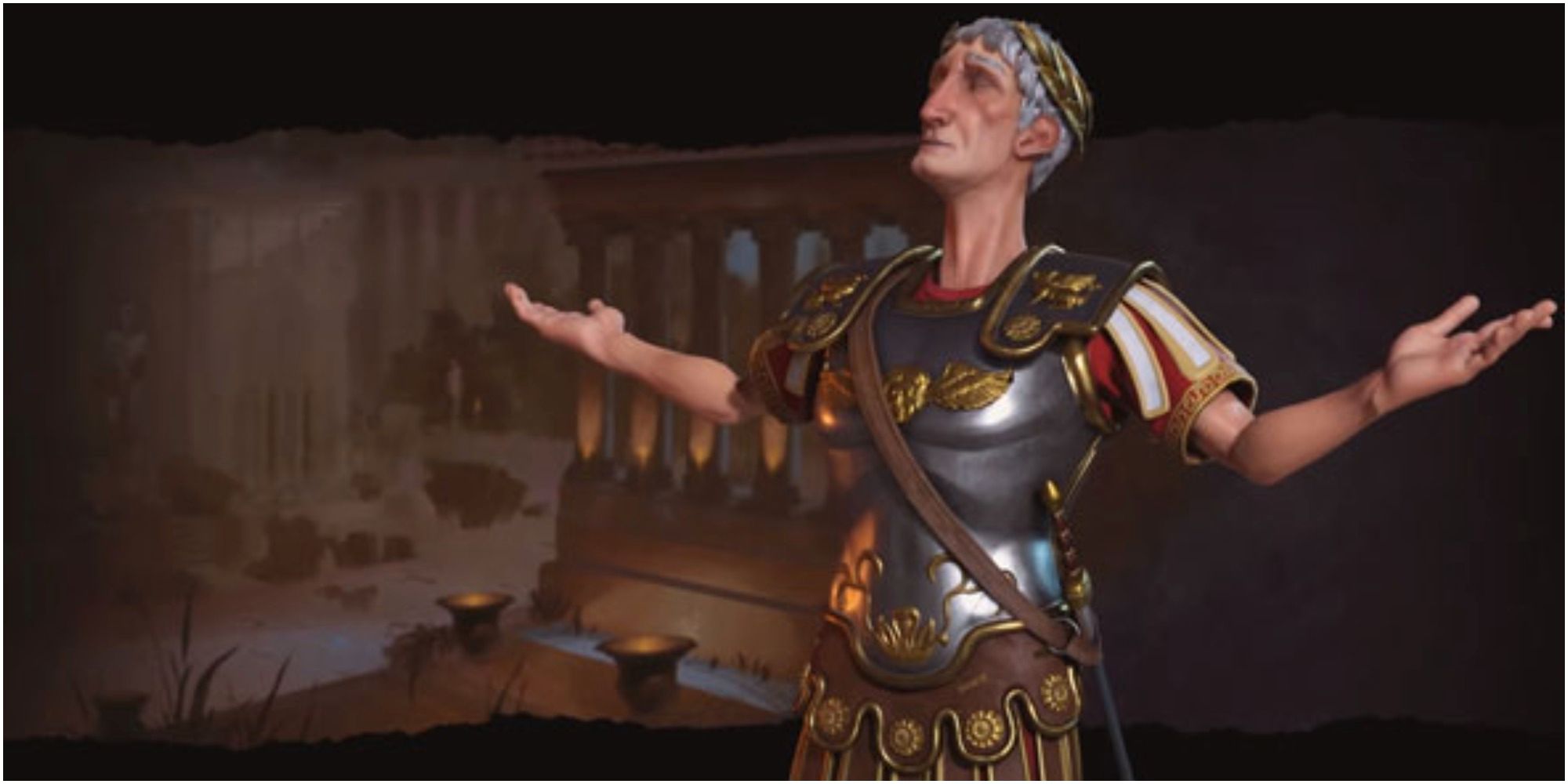
The first major difference between both games is how they approach the civilization itself. Instead of Civs, Humankind utilizes cultures. At first glance, these two concepts may appear identical, but they hold their own unique properties. First off, the cultures are not beholden to any single character. Whichever character the player chooses will be the same throughout the game but they will be able to still switch cultures as they progress.
Much like choosing a government in Civilization 6, the cultures of Humankind will provide a bonus after they are left behind if the right criteria are met. A culture can be claimed by enemies so that they no longer become available turning the game into a race of sorts as to who will reach their preferred culture first.
War
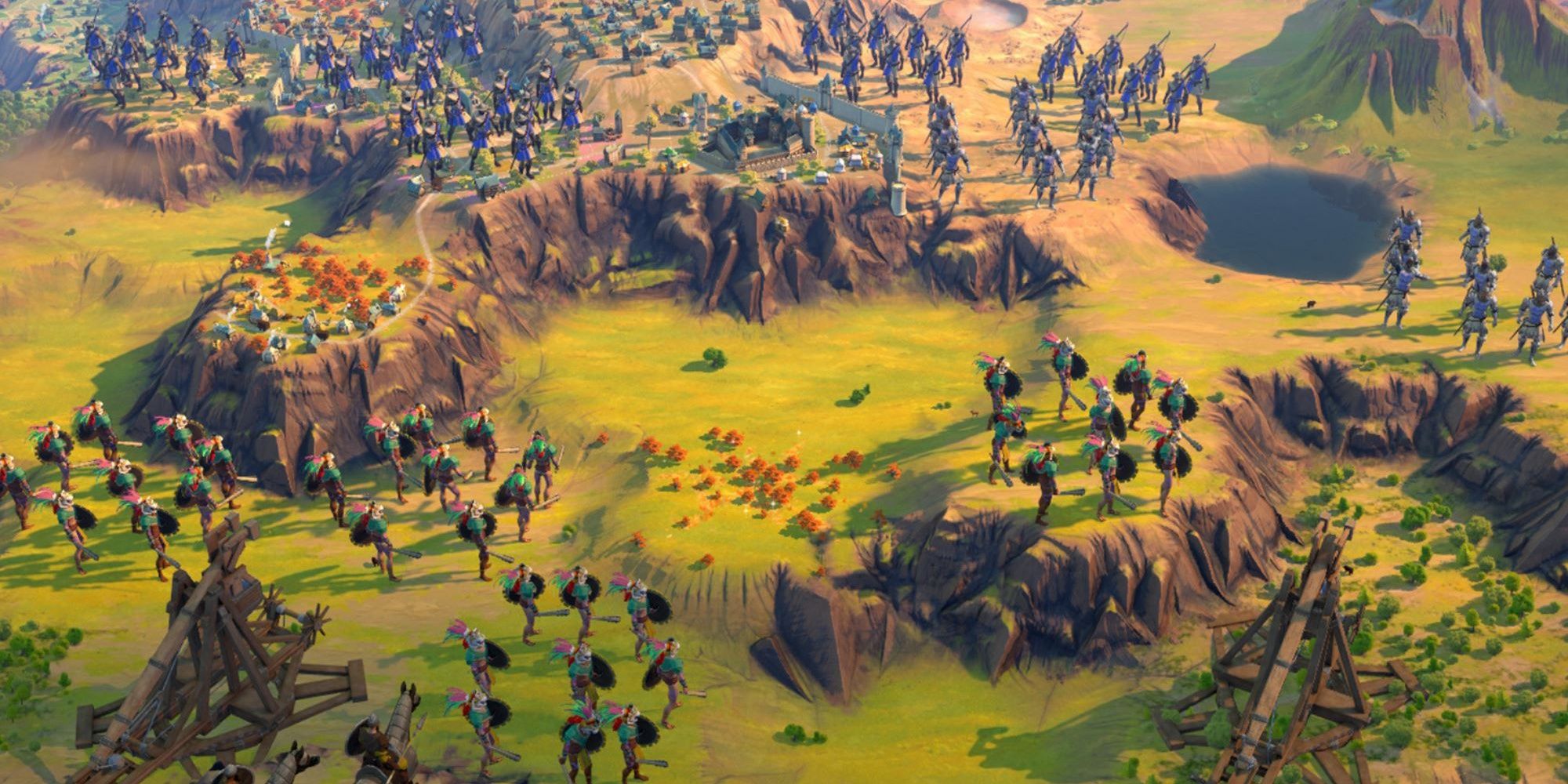
War has gotten a facelift as well. Combat in Humankind is much more of an event. When a fight has been triggered, a goal is set and a section of the map is bordered off to facilitate the participants. For the most part, it is just about the aggressors having to take out the defenders in three turns or capture the defender's flag.
RELATED: Civilization 6 Mod Adds Civ 5 Maps
Humankind has an ace up its sleeve to further differentiate it. Units can merge into armies. Said units can also be placed strategically at the start of the fight. Just remember to not overdo it as units cost population to construct. War enthusiasm is another thing to track. The more war enthusiasm, the better and longer a person can fight a war. This can be useful in manipulating the enemy into ending a war early, though the enemy can also do the same to the player.
Characters

As was mentioned before, Humankind employs the use of characters instead of attaching a character directly to an individual Civ. There are plenty of historical figures to choose from out the gate. However, this is just the tip of the iceberg. Players will also be allowed to create their own custom characters.
From 10 archetypes, a leader can possess 3 personality traits and select 2 different biases. The leader can also be given 2 strengths. This avatar can be shared with others or even set their own AI tendencies. These tendencies give them preferred playstyles, helping them to stand out better and making them useful when they are not being used by the player. Other AI settings can be unlocked through play and achievements. Of course, these characters can be made to fit a number of styles, including the more ridiculous ones.
Fame/Winning
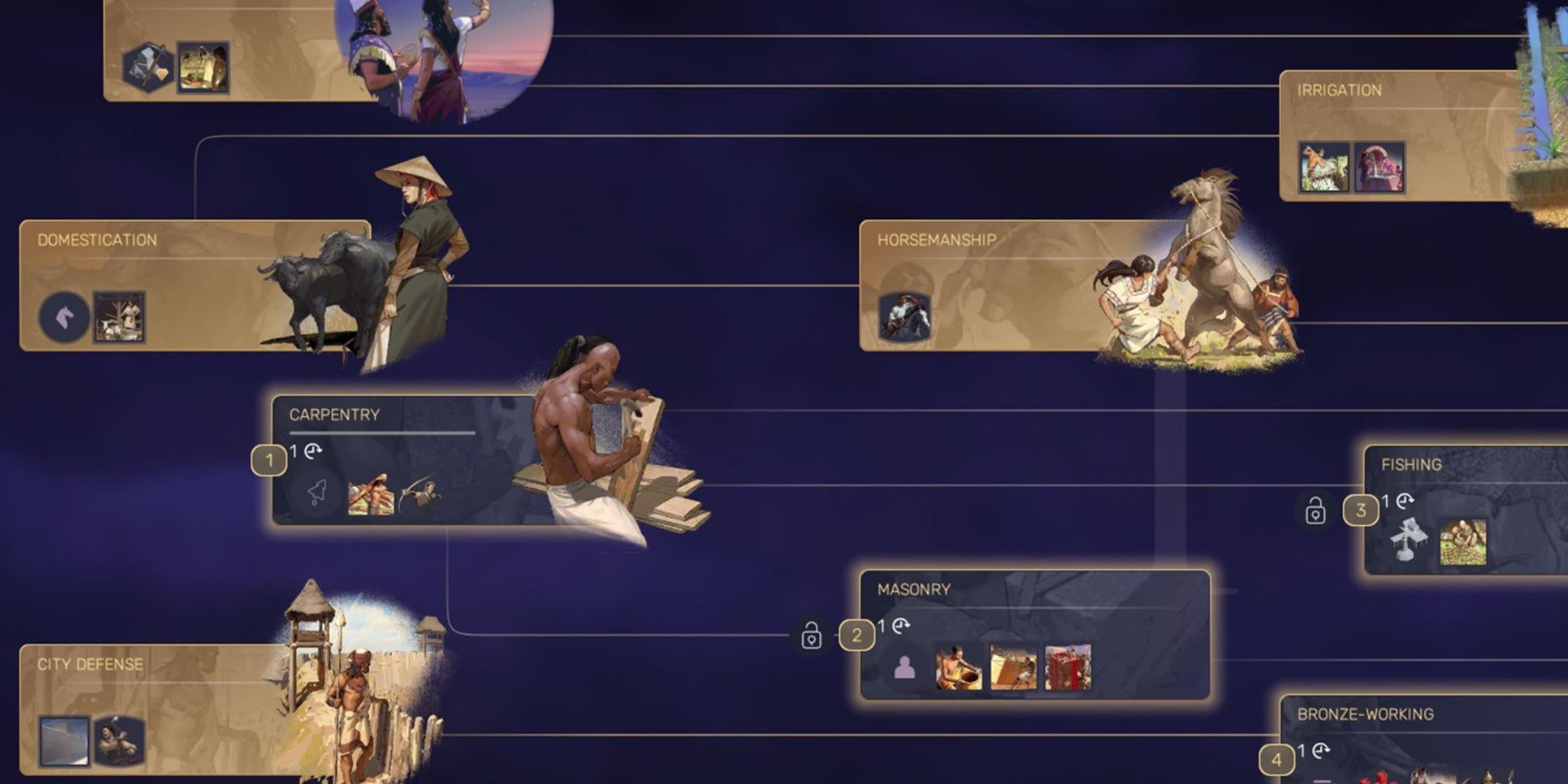
Instead of the 6 win conditions that Civ players are so familiar with, domination, science, culture, diplomacy, religion, and score, Humankind does things a bit differently. It decides to rely mostly upon its own version of the scoring system. This score, now called Fame, is how players advance beyond their neighbors and win the game. Whoever accumulates the most fame wins.
RELATED: Civ 6 Tips On How To Obtain A Science Victory
There is a whole host of different things a player can do to earn points. Defeating an enemy, constructing impressive buildings, advancing science, overachieving certain goals, etc. It no longer becomes about rushing to advance as fast as possible, instead the player will want to accumulate as much fame as they can at each stage of the game. The short-term strategies become just as important as the long-term strategies. The fame is spread across 6 eras, making each era a true milestone. Fame collection will largely depend on what culture has been chosen.
Terrain
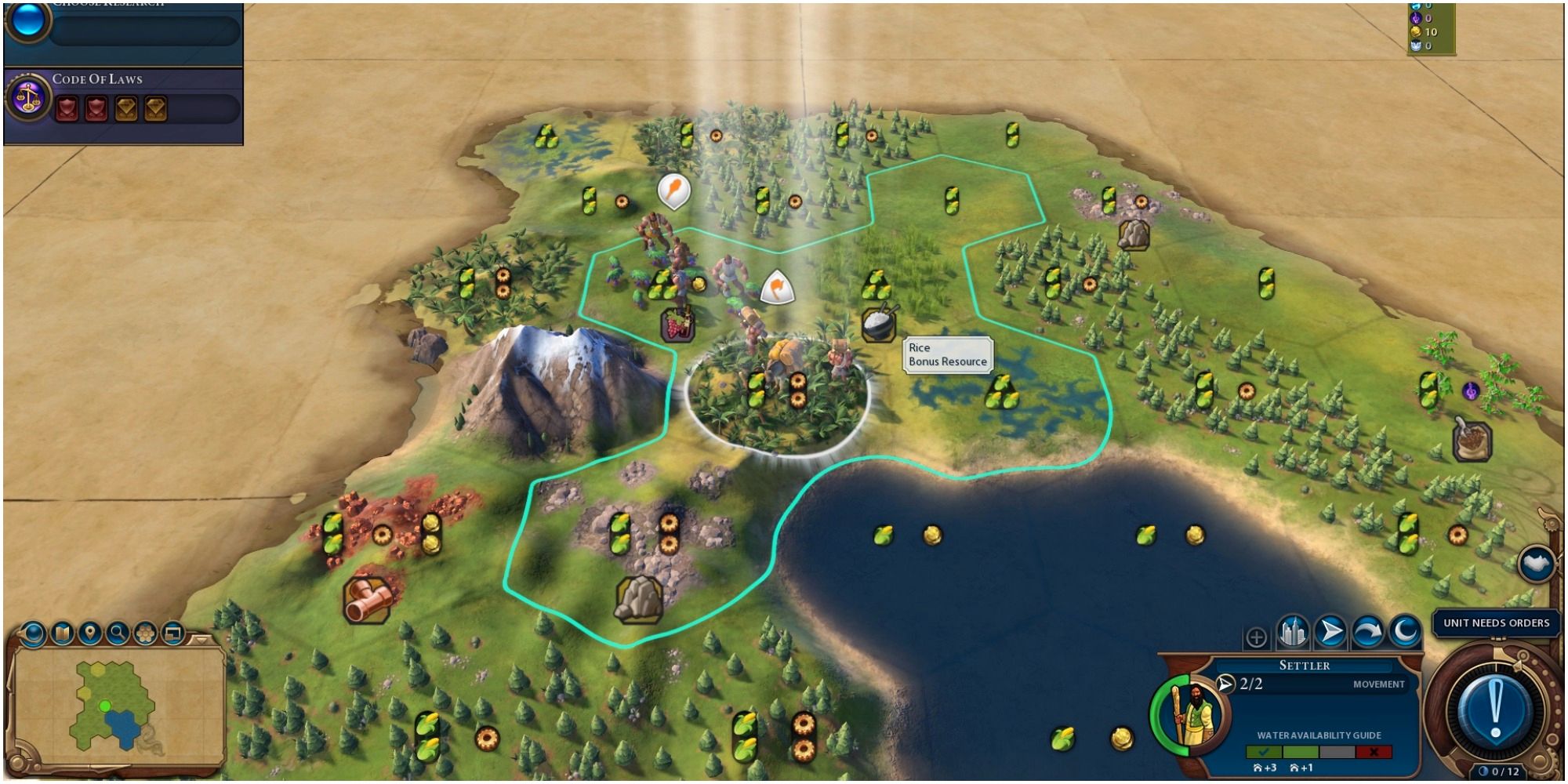
Terrain plays a bit differently than Civ 6. elevation is now something a player has to take into account whether that be in battles or in how they construct their cities. As to be expected from a strategy game, there is a benefit to positioning units onto the high ground. Units will gain a defense buff and generally do more damage. Forests are another thing to remember. units can be hidden in a forest, ready to ambush passing enemies.
One of the more fun aspects of Humankind is how being the first to discover a natural wonder or some other notable feature of the world, will allow the player to name it. With this privilege comes cultural influence and extra fame, rewarding explorers. With all of these things in mind, the construction of one's civilization has to be carefully planned. For instance, a city built on top of a high plateau will be much easier to defend from potential invaders. Though, the same is true for enemies so it is best to be cautious.
NEXT: King's Bounty 2: Every Starting Character & What They Do

